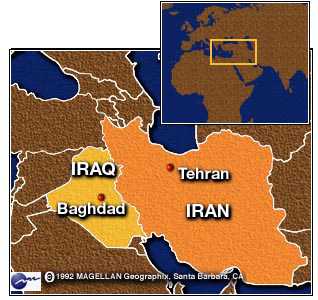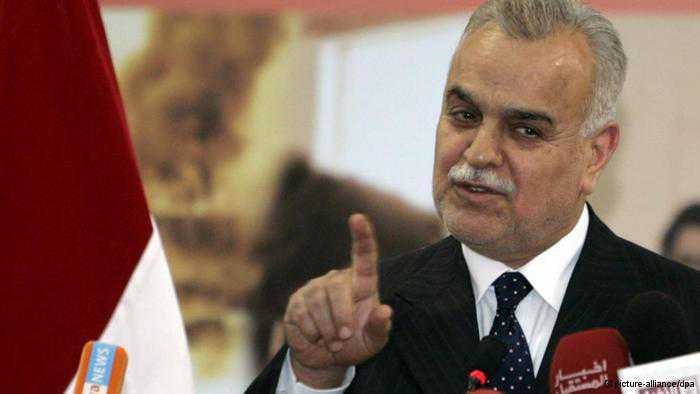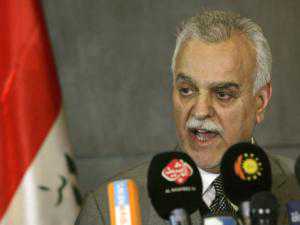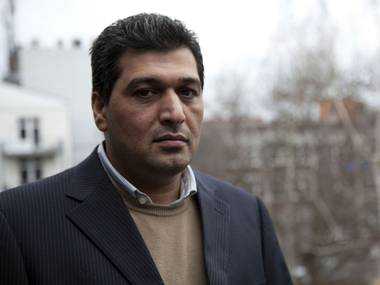By Palash R. Ghosh
The central government of Iraq warned the Kurdish-ruled semi-autonomous region of northern Iraq that it must obtain Baghdad’s approval for any oil export deals signed with Turkey.
Kurdistan Regional Government Natural Resources Minister Hawrami speaks with Turkish Energy Minister Yildiz during a joint news conference in Arbil.
On Sunday, Iraqi Kurdistan unveiled an agreement to sell oil through Turkey into the international markets, thereby leaving Baghdad completely out of the loop. The Kurdish oil minister Ashti Hawrami said Iraqi Kurdistan will construct a huge 1 million barrel per day pipeline over the next 12 months through which oil and gas will be carried through Turkey.
“We envisage the building of a new pipeline taking Kurdistan’s oil, particularly the heavier component part to Cihan,” Hawrami said at a conference with Taner Yildez, the Turkish energy minister.
Baghdad believes such an arrangement contravenes Iraqi laws, while Kurds assert they can sign any contract regarding their natural resources according to the terms of the constitution.
Since 2003, the Kurds have entered into dozens of gas and oil deals, all of which have been classified as “illegal” by the authorities in Baghdad, who have also blacklisted the companies involved, including Exxon Mobil Corp. (NYSE: XOM), from doing business in Iraq’s southern oilfields.
“We have no problem with any deals, but they have to be according to the Iraqi constitution and laws that govern relations between Baghdad and the Kurdish region,” said Ali al-Moussawi, an adviser to Iraqi Prime Minister Nouri al-Maliki.
Earlier, the Kurds and the central Iraqi government entered into a deal under which Kurdistan would transport its oil to Baghdad, which would then sell it on the international market (with each side taking half of the revenue). However, in April, the Kurds cancelled this agreement, citing a payment dispute with Baghdad.
But Hawrami insisted that there is no distinction between Kurdish oil and Iraq oil.
“When we say oil from Kurdistan, it’s Iraqi oil,” Hawrami said.
“There is no difference between Iraqi oil or Basra oil from Kurdistan.”
A pact between Iraqi Kurdistan and Turkey was inevitable.
“If you look at Turkey, which is the second-fastest-growing country in the world, its gas needs, which increase significantly every year, and then the price of oil, I think people realize that Turkey is looking to Iraq — particularly the Kurdish regional government — very carefully, because of economics, not because of politics,” Mehmet Sepil, chairman of Turkey’s Genel Energy, told al-Jazeera.
Iraq is now Turkey’s second-biggest trade partner, although most of that trade is with the Kurdish region.
According to the Kurdish government, there are about 143 billion barrels of proven oil reserves in the south of Iraq, while the northern (Kurdish) semi-autonomous region has about 45 billion barrels,.
Meanwhile, any deals with Turkey will likely worsen already tense relations between Ankara and Baghdad.
Maliki of Baghdad was also outraged recently when Turkey’s Prime Minister Recep Tayyip Erdogan hosted Tariq al-Hashemi, the Iraqi vice president who had been issued an arrest warrant by Baghdad for allegedly forming death squads. Hashemi has since escaped to Iraqi Kurdistan for refuge.
via Iraq Warns Kurds Against Striking Oil Deal With Turkey – International Business Times.





